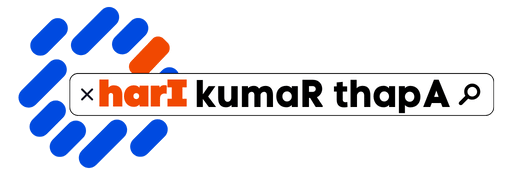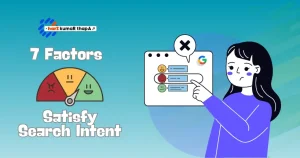If you are new to Search Engine Optimization, let me tell you that “Keyword Research” is a part of On-page SEO, which involves searching for relevant and profitable keywords to rank for.
In my early days, I randomly picked a keyword related to my niche and wrote tons of content. The problem with this is that you are shooting your arrows in the dark, not knowing what you will hit.
In this guide, I’ll explain keyword research, why it is important, and how to increase your website’s visibility and attract relevant visitors.
What is Keyword Research?
Keyword research is a process of finding relevant and profitable words, queries, and phases with a decent search volume that users search on search engines like Google, Bing, etc.
For Example, Keyboard Prices in Nepal

A quick keyword research on “Keyboard Price in Nepal” shows what Nepalese people are interested in knowing about the keyword “Keyboard”.
We can see hundreds of “commercial intended” keywords on Mechanical, Gaming, and Dell. People are interested in knowing the price range of these keywords, which can be a lead and potentially a customer if you are selling a keyboard.
On the other hand, you can see 1000s of searches for “Piano” on the same list, which has a similar keyword, but the product is different. It is a musical instrument where people search for the prices of “Yamaha” and “Casio”.
These researches help us with information that will save time, resources, and money. Targeting the right keywords for better results and organic traffic from search engines.
Why Is Keyword Research Important?
Keyword research is important in SEO as it provides data to help you choose the best keywords to pursue for the best results. After a thorough research, we get a rough idea on
- search intent,
- search volume,
- keyword difficulty,
- competition,
- relevance, and
- trends.
It helps you create targeted content that satisfies users’ answers and needs. This can earn you an organic ranking on the search result page (SERP).
Which is more valuable and cheaper than the paid ads traffic.
Proper Keyword research will connect your business to a potential customer. You must understand what they want and need and what could solve their problem.
It also helps to understand if the keyword you are after will deliver traffic that can be converted and what your visitors are worth.
Basics: Keyword Research
Search Volume
Search Volume or Volume is one of the most important parts of Keyword Research as it shows how many people search for the keyword in Search Pages.
Targeting a keyword with no searches does not make sense. In the meantime, High-Volume traffic is also not worth it if it is irrelevant to your niche or website.
High Volume are usually informational intended, which is best for brand awareness. (Eg. How to use/clean a Coffee Machine)
Low-volume searches are keywords that are in the transactional intent, meaning users are ready to purchase (Eg. Buy Coffee Machine)
Relevancy
Google wants relevance when it provides a webpage to searchers, meaning it will provide the most relevant information based on users’ past clicks.
Let’s use an example: [Apple] What does this click on your mind? Most users these days will say “Apple Company,” and that is what Google will show.
If you want the fruit, you must search for “Apple Fruit”.
Looking at SERPs is one important part of Keyword searching to determine what pages are being pushed to the Top.
Types of Keywords
Identify your keyword type, and your capability before targeting. Below are a few keyword types.
- Short-tail Keywords: high volume but more competition
- Long-tail Keywords: lower volume, less competition but higher conversion
- Supporting Keywords: FAQ type of question, easy to rank and get initial traffic.
- LSI Keywords: Latent Semantic Indexing
- Branded vs. Non-branded Keywords: Coca-Cola vs Soda
Search Intent: Role in Research
As the name suggests, Search Intent is simply what the User intends to do with their search.
Users can search for the same keyword with different intent, and in the SEO community, we’ve differentiated it into 4 categories:
- Navigational: Looking for a specific page (Eg: Keyboard’s website)
- Informational: Looking for information on a topic (Eg, The difference between Normal and Mechanical Keyboard)
- Commercial: Researching products (Eg: Affordable Keyboard)
- Transactional: Looking for a product with intent to purchase (Eg, Buy Fantech MAXFIT 61)
Keyword Research Tools: Find profitable keywords
The first step to finding a keyword is to Brainstorm Ideas or choose a seed keyword like “Coffee Machine.” Once you search for that keyword, you will find thousands of related keywords.
Not all keywords are necessary for your business; you need to filter them out according to needs and relevance.
After choosing your Keyword, you can use SEO tool metrics such as Estimated search volume and Difficulty to analyze SERPs.
Keyword Research Tools: Paid
SEO is a competitive space. You must find tools that suit your style and can rely on. Luckily, there are hundreds of Keyword Research tools, some Free and some with paid options if you need more data.
SEO tools like Ahref, Semrush, Ubersuggest, and Wordstream will help you find keywords based on your SEED Keyword. Provide estimated search volume, keyword difficulty, and list of competitors that are ranking for the search term.
They have their own metric ranking a keyword’s difficulty, volume measurement, and showing queries, questions, and more related keywords.
Google Search Console: Optimize Existing Content: Free
All major Search Engines provide a free search console to help you monitor, maintain, and troubleshoot the site’s visibility on the Search Page.
You can use this to find keywords and optimize your existing content so that you rank for more keywords effectively.
Most of the time, we rank for keywords we did not intend, and using this tool, we can find and optimize our page or create an entirely new page if needed.
How to use it?
- Open the Google search console
- Go to Search Result
- Tap on Pages
- Filter to Clicks or Impressions (optional)
- Choose a page and look through the Queries
Search Engines Suggestions: Free
If you do not have enough budget and want organic results, then taking suggestions from Search Engines directly is one great way to find long-tail Keywords.
Google Auto-Complete
One good example is Google’s auto-complete, as shown below. When you type your seep keyword, they auto-complete with suggestions that users are already searching for.

People Also Ask
Another good approach would be looking at the “People Also Ask” section inside the search.
These are questions people are looking for that are directly related to your keyword. You can find these questions for free on the middle or above results on Google pages.
Alsoasked.com and Answerthepublic.com are popular tools you can use for free to find similar questions.

Related Questions
Finally, at the end of Google, you can find related keywords that are searched by users. These are related keywords and are usually similar to autocomplete.

Tracking and Measuring Keyword Success
Tracking and measuring keyword success is important to ensuring the effectiveness of your SEO efforts. Without proper monitoring, you risk missing out on potential traffic and conversions.
Here’s how to track keyword performance:
- Monitor Keyword Rankings: Use tools like Ahrefs, SEMrush, or Google Search Console to track your position.
- Analyze Organic Traffic: Check how much traffic specific keywords/pages bring to your site.
- Measure Conversions: Track which keywords lead to desired actions like sign-ups or purchases.
- Adjust Strategy: Regularly update your keyword list based on performance data.
Common Keyword Research Mistakes
A common mistake newbies make is going after keywords:
- With high volume without checking Competition,
- Ignoring search intent,
- Target seed keyword as a primary keyword,





